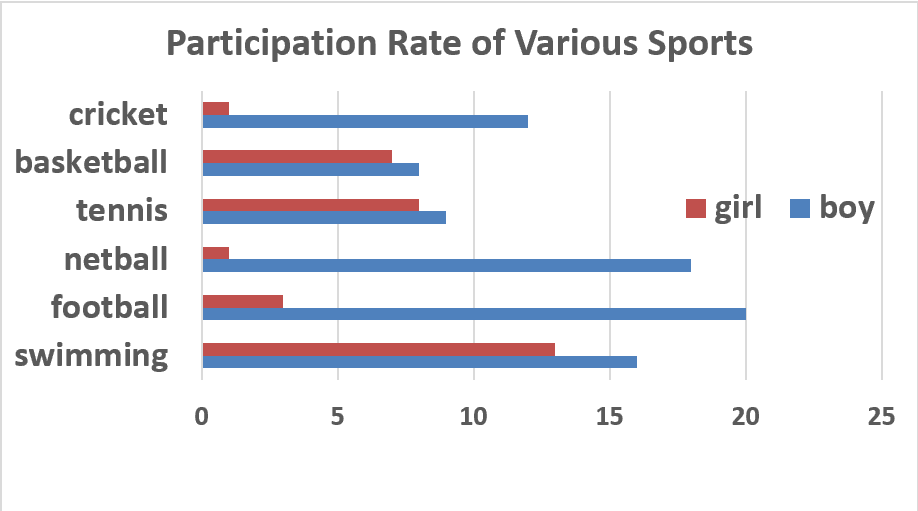advance这个词在托福写作中应该算是比较高级的一个词汇。很多同学都很喜欢使用这个词汇,但在实际运用时因为没有搞懂词汇的词性以及用法上的区别很容易出现用错的情况。下面小编就和大家分享托福独立写作易错词汇advance多词性用法例句分享指点,希望能够帮助到大家,来欣赏一下吧。
托福独立写作易错词汇advance多词性用法例句分享指点
托福独立写作易错词汇advance多词性用法指点
1. advance做动词使用
advance这个词既可以作为动词使用,也可以当成名词来运用。先来看一下其作为动词时候的意思,也就是向前前进,英文解释是to go or move forward。这个词比较有趣的一点是,词义中的前进,既可以用来描述单纯的物理性往前的运动,也可以用来描述抽象意义的有进展或者有所改善进步之类的意思。下面给出例子:
表示物理性运动:The troops advance towards the capital.
表示进展进步:Technology advances so quickly, I can hardly keep track.
同时,advance也可以作为及物动词来使用,这个时候它的意思中多出了一层引领或是促使前进的含义,也就是to bring something forward。这种时候我们一般用它来表示某种个人能力或是技巧上的提升,比如:
a. I advanced my knowledge of English by studying abroad.
b. I want to advance my career in banking.
另外,动词advance还具有较为明显的时间属性,也就是时间上的向前提前的意思。下面这两个句子中的advance就带有这种含义:
c. As the twentieth century advanced, other forms of entertainment rapidly took over
d. The bank advanced me 500USD today.
大家要特别注意一下上面d这个例句,这里的advance有提前支付,预支的意思。在涉及到钱款支付时,用advance来表达是比较地道的,大家要重点记住。
2. advance做名词使用
接下来小编再来讲解一下advance用做名词的情况。名词advance通用也带有前进进步的意思,用英文来解释就是a certain move forward或者a specific improvement,这时候的advance是可数名词,用法上一般和in来搭配,来看几个例子:
a. Scientific advances in diagnostic tools make it possible to identify new diseases more quickly.
b. Advances in technology led to the industrial revolution.
c. Recent advances in technology now make the smartphone more popular than the desktop computer.
d. Huge advances in the development of anti-depressants greatly help people who suffer from depression.
之前解释advance做动词时有说过其在钱款支付方面的意思,作为名词使用时advance同样也能够进行类似的表达,比如an advance就可以指提前支付/预付的钱款,给两个例子大家参考一下:
e. She asked for an advance on her salary.
f. The bank will give you an advance of 95% of the purchase price.
另一个名词形式advancement解析
最后,小编还需要就考生经常用错用混的两个名词advance和advancement的用法含义区别为大家做一下解析。虽然同为名词,含义上也非常接近,但这两个词汇在意思细节上还是存在明显区别的。advance描述的是个人的或是看得见摸得着的进步改善,而advancement则是更为广义且抽象的进步改善。而在用法搭配上,advancement也更多的是和of一起使用,而advance如前文所说,主要是和in搭配在一起,来看具体例句:
a. Our company has made significant advances in our mobile phone technology.
b. Advancement of technology is a crucial factor for national growth.
c. The advancement of modern medicine has lengthened many people's lives.
例句a中我们公司在手机技术方面的进步,是很具体的进步,因此用advance,搭配了in。例句b是更为抽象的广义上的技术进步,所以用的是advancement,搭配的是of。例句c中现代医学的进步,也没有涉及到具体内容,属于抽象大范围的表述,所以也用advancement并同样搭配了of来使用。
托福写作:题库范文附思路解析
1. Should we pay attention to the opinions of famous people?
When famous people such as actors, athletes and rock stars give their opinions, many people listen. Do you think we should pay attention to these opinions? Use specific reasons and examples to support your answer.
『分析』
观点:大多数时候,没必要听这些人的话。因为他们往往不是专家。然而也不能走向绝对,这些人的意见在某些时候也是对的,或者值得关注的。比如在一些场合中:慈善演出(charities; charitable institution;charitable performance)。
『范文』
It is only in the last hundred years that the "star" phenomenon was born. Prior to 1900, there were no famous entertainers in today's sense. Fame was held for political officers. However, today, the people who appear before us either on a court, a stage, a field or a screen, are in fact more famous than many political officers. Many people listen to these famous people and act as if their word was gospel. However, I do not think this is correct behavior. Stars should be treated with respect, but their opinions should not count for any more than a regular person's opinion. Becoming a star does not automatically endow a person with limitless knowledge. Stars must do research to form their opinions, just like the rest of us. It is no more or less likely that a star will have a valid opinion on a subject than a friend from school.
In many cases, when stars state their opinions, they are not telling the world how they truly feel. Many famous people will only make announcements that their publicists have approved. Therefore, in many cases, it is not the stars' opinions that we are hearing at all, but in fact, that of the corporations that they work for. I believe that the only time that we should really value the opinion of what a star has to say more than we value others' opinions is when the star is talking about a subject that he/she specializes in. For example, if a basketball player is giving his/her opinion on how his/her team will do in the play-offs, then one should probably take the opinion to heart. Everyone has his/her own field of expertise. If stars, or regular persons for that matter, are talking about their professions, they are bound to have extensive knowledge on the subject.
In conclusion, I do not think that we should listen to the opinions of stars unless they are speaking on a matter that they specialize in. "Regular people" have just as well thought out knowledgeable opinions as the stars, sometimes even more so. Unfortunately, many young adults idolize these stars and believe everything they say.
Because of this, it is important for stars to be careful about passing on inaccurate information.
2. What is the change that should be remembered about the twentieth
century?
The twentieth century saw great change. In your opinion, what is one change that should be remembered about the twentieth century? Use specific reasons and details to explain your choice.
『分析』
这道题,与[178]比较相像。如果能找到一个20世纪与21世纪共同的变化,那么就可以写一篇文章应对两道题目。比如:中国的巨大变革(经济上、政治上、文化上的变化)。
『范文』
In the last century, the speed at which technology is developing has increased at a phenomenal rate. If someone living one hundred years ago could see the world today, they would think they were peering onto the set of a science fiction movie. Of all of the inventions created in this time period, I believe that the computer and the Internet should be remembered above all others. The first reason why I believe that the computer and the Internet are so important to history is because they allow, for the first time ever, all of the people in the world to share their information. If I can speak Italian, I can access all of the websites from Italy. If I have a working knowledge of Japanese, the wealth of Japan's information is at my fingertips. The Internet connects people and ideas, therefore allowing everyone to increase his/her knowledge.
The computer also allows us to make complex calculations with the greatest of ease. A century ago, it would have taken an expert ten months to work out some of the more intricate problems that math and science provide us with. However, with computers, these problems are solved within seconds. Computers also speed up other aspects of our lives. Most young people living in developed nations can type faster than they can handwrite. This, of course, speeds up the education process as well as the business world. Finally, the computer and the Internet are very important to the twentieth century because of its effect on the entertainment industry. Computers have allowed for complex video games to be created, which are the current craze in most cultures. Teenagers everywhere spend countless hours playing these games, and gain great enjoyment from them. For those not interested in video games, the computer has also allowed for great advances in the movie industry. Special effects are now commonplace in every modern movie we watch. They make movies more realistic and exciting.
In brief, I believe that when future generations look back on the twentieth century's inventions, they will be most impressed with the computer and the Internet, as it has changed the way we view the world and interact with each other.
3. Complain in writing or in person?
When people need to complain about a product or poor service, some prefer to complain in writing and others prefer to complain in person. Which way do you prefer? Use specific reasons and examples to support your answer.
『分析』
可以采取it depends的策略,要看是什么样的问题。也可以先比较,后选择。
书信投诉:有条理;避免冲动、更加理性;可以直接与高层沟通;也可以向媒体投诉;但是可能石沉大海(like a stone dropped [sank] into the sea — no echo)
当面投诉:可能是最快解决问题的方式;相比文字,有更多的表达方式,比如appeal to emotion; appeal to pity等等;但是如果缺乏控制,可能会引起争吵,反倒使情况恶化。
相关题目:[69]
『范文』
When we finally find out a service or a product that failed to satisfy us, we have to complain. Occasionally, we can choose whether to make an argument face-to-face or in writing, but usually we have no choice. We have to make our case in person if we need a personal touch or have no time to write; we have to write if we can't meet the right person to complain.
Writing has its advantages: when we write, we can better control the flow of our ideas, explain complex issues patiently, and convey our feeling of troubles that the poor products have brought explicitly and accurately. On the other hand, writing also has disadvantages: we may lack of a sense of what the readers are like—amiable or prickly, generous or difficult—and we can't respond immediately to their doubts, questions, or misunderstandings.
When we write, we also lose one way to get the reader to take our argument seriously: face-to-face, we can draw others into it with our body language, the passion in our voice, even the look in our eyes. If, for example, I ran into a dean after a bad experience at the student health service, I could visibly communicate my frustration right there, and the dean would probably respond more intently than if he/she were in his/her office reading an angry letter.
For common trivial problems, I'd prefer to complain in person, which is more direct than in writing. To a large extent, to complain in a right way is a pure skill, if properly handled, problems can be solved without any quarrel, because appropriate courtesy is always appreciated. On the contrary, if the problem or issue is fairly critical, I'd prefer write a specific piece to complain, for complex issues often deserve careful thinking.




